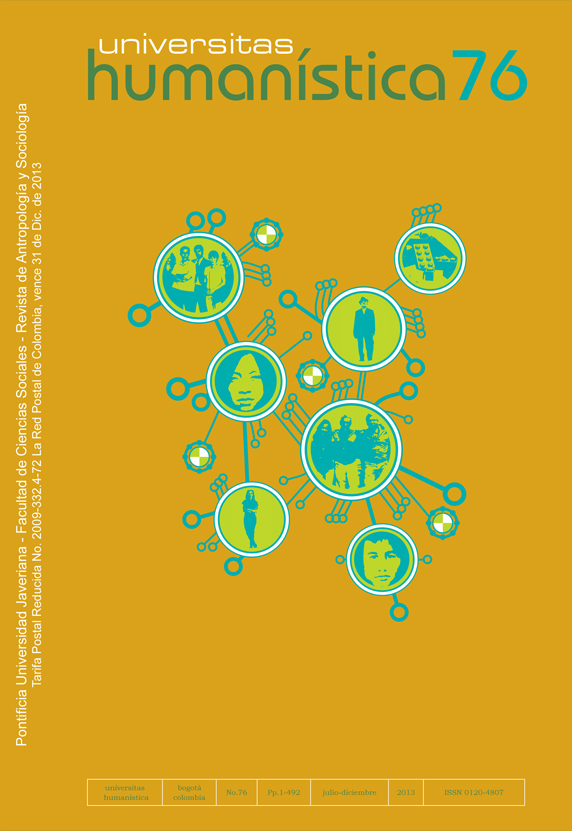Abstract
The purpose of this article is to analyze the mediation efforts of the university in innovation processes in social networks. The article is based on the sociology of innovation by dissociation. It explains how the work of two groups of university research passes from one process of accompaniment to another of distance, in the constitution of a cooperative in a neighborhood of Bogota, Colombia. The guidelines of the analysis are the types of workshops applied in the transition from economic development approaches and local economic management to learning communities approach. For university mediation to be directed toward a Socio Technological System, it is necessary to understand innovation not as a process of change, but as one of exchange based on vital vocations, this requires going beyond scientific inquiry as the only source of innovation.

This journal provides immediate open access to its content on the principle that making research freely available to the public, encourages greater global exchange of knowledge.
The journal Universitas Humanística is registered under a Creative Commons Attribution 4.0 International Public License. Thus, this work may be reproduced, distributed, and publicly shared in digital format, as long as the names of the authors and Pontificia Universidad Javeriana are acknowledged. Others are allowed to quote, adapt, transform, auto-archive, republish, and create based on this material, for any purpose (even commercial ones), provided the authorship is duly acknowledged, a link to the original work is provided, and it is specified if changes have been made. Pontificia Universidad Javeriana does not hold the rights of published works and the authors are solely responsible for the contents of their works; they keep the moral, intellectual, privacy, and publicity rights.
Approving the intervention of the work (review, copy-editing, translation, layout) and the following outreach, are granted through an use license and not through an assignment of rights. This means the journal and Pontificia Universidad Javeriana cannot be held responsible for any ethical malpractice by the authors. As a consequence of the protection granted by the use license, the journal is not required to publish recantations or modify information already published, unless the errata stems from the editorial management process. Publishing contents in this journal does not generate royalties for contributors.


